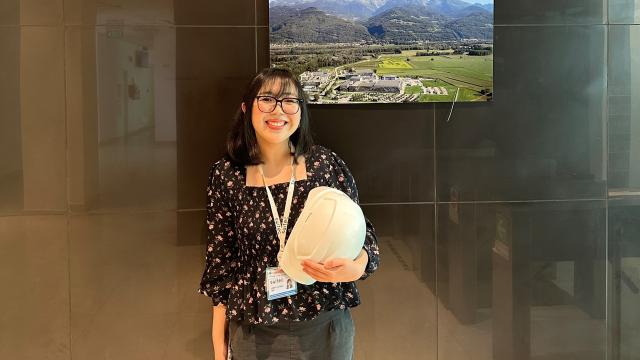
Toh Yi Sin was midway through a military training exercise when the Republic of Singapore Air Force pilot trainee received his test results from a recent flying exercise. He had failed to make the cut. Devastated, he realised that he might never fulfil his dream of becoming a fighter pilot.
Refusing to give up, he decided to take up his friend’s suggestion and pursue a civil engineering degree at the Singapore Institute of Technology (SIT). This, he believed, would ensure that his skills and experience in the force would not go to waste.
The idea here was simple. Going back to school would provide him with a strong foundational knowledge in engineering and bolster his technical know-how. This, he believed, would allow him to route back into the aerospace sector eventually.
“Not being able to realise my dream the first time around was a big blow, but I think the most important thing was picking myself up and not letting defeat get to me,” said the third-year student.
“At SIT, I am not only able to gain new knowledge, but I am also able to bring my own experience to the table.”
From aviator to problem-solver
For Yi Sin, 28, making the transition from pilot trainee to civil engineering undergraduate also means joining an industry that has seen a surge in demand for skilled engineers over the past few years.
With major infrastructural projects slated for the next few decades in Singapore, he believes that the prospects for career progression are immense.
A joint collaboration between SIT and the University of Glasgow (UofG), the Civil Engineering degree prepares students for the fast-emerging sector by focusing on emerging technologies and on-the-job learning.
“The industry is always changing and evolving with every new project — there will always be a demand for civil engineers,” he said.
It also helps that the programme at SIT allows graduates to continue with the Master of Engineering Technology in Civil Engineering after graduating from the bachelor degree. This one-year full-time specialist training deepens knowledge in structural and geotechnical engineering at graduate level.
“I am looking forward to gaining work experience after graduation, but I will definitely be keen to head back to SIT and improve myself in the future,” he said.
That’s not all. His classes go beyond engineering. For instance, students have to study communication theory modules, so that they can communicate their ideas effectively.
These include public speaking and professional presentation classes, which help improve communication skills for Yi Sin and his classmates. The university wants to nurture engineers who possess not only deep technical knowledge, but the soft skills that allow them to go beyond the nuts and bolts of their designs.
“I think being able to express a good idea is just as important as coming up with one,” he said. “These modules have definitely helped me improve the way I present myself and my work.”
“I think the most important lesson I’ve learnt so far at SIT is to never give up,” he said. “No matter how difficult or impossible your dream might be, always remember that victory favours the brave.”

Courtside action
It was a trait gleaned not just from SIT classrooms. He has picked up important lessons of fighting spirit and leadership by taking charge at home to care for an ailing family member.
Despite this, he still found time to pursue sports in SIT. When he first joined the SIT’s basketball team in 2018, he had to ramped up recruitment for the eight-member team
Two years on, he has tripled the group to 24 members. In recognition of his efforts, he was awarded the Varsity Leader of The Year award in 2019.
“Being able to be part of the SIT family has taught me that by coming together as one, we stand to achieve so much more.”
![[FA] SIT One SITizen Alumni Initiative_Web banner_1244px x 688px.jpg](/sites/default/files/2024-12/%5BFA%5D%20%20SIT%20One%20SITizen%20Alumni%20Initiative_Web%20banner_1244px%20x%20688px.jpg)


